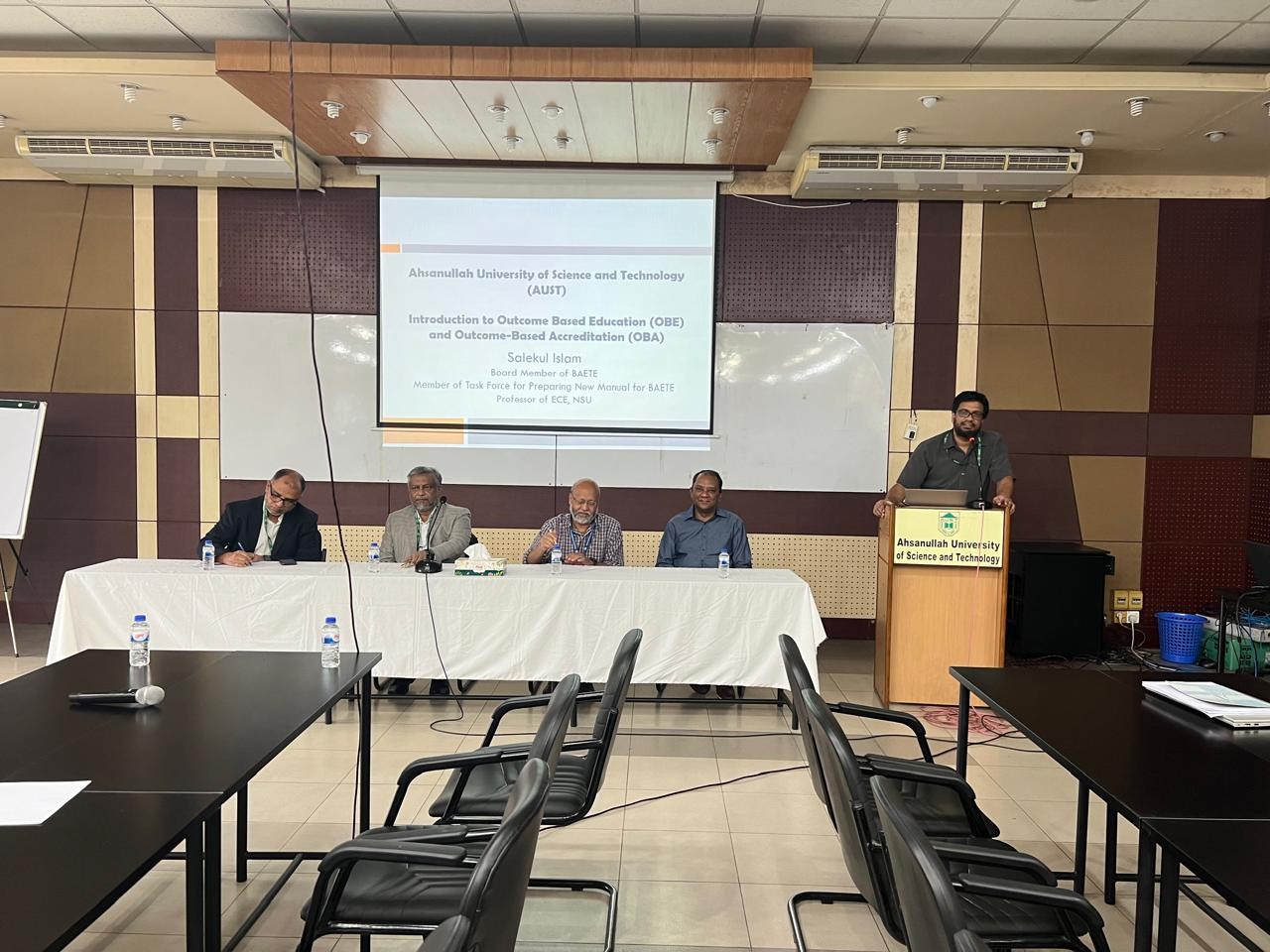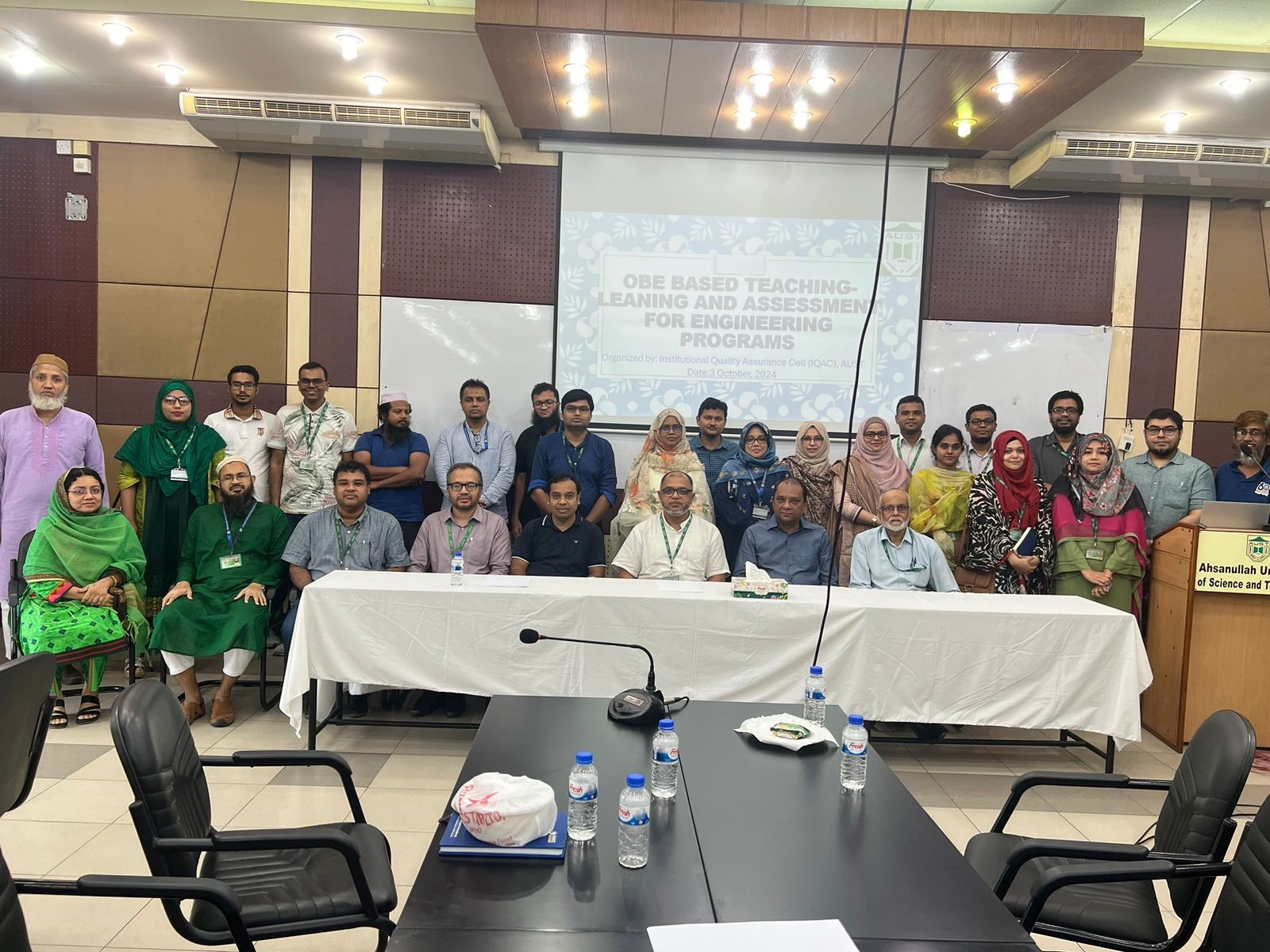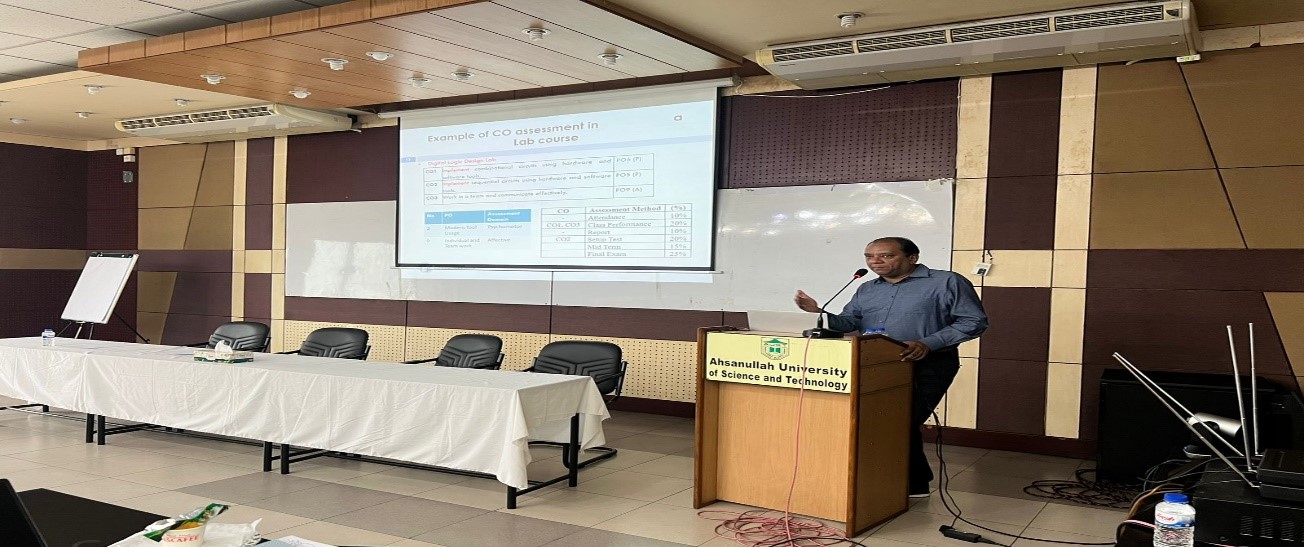Workshop on “OBE Based Teaching, Learning and Assessment for Engineering Programs”
The Institutional Quality Assurance Cell (IQAC) of Ahsanullah University of Science and Technology (AUST) organized a workshop on “OBE Based Teaching, Learning and Assessment for Engineering Programs”. The program was held on Thursday, October 03, 2024 from 10:00 a.m. to 01:30 p.m. in the VC seminar room, Level:4, Block-D, AUST. All Deans of Faculties, Heads of Departments, PSAC members and OBE Coordinators from all departments were present in the seminar.

The chief guest was the Honorable Vice Chancellor of AUST, Prof. Dr. Md. Ashraful Hoque. The special guest was the Honorable Pro-Vice Chancellor of AUST, Prof. Dr. Mohammed Mahbubur Rahman. The session chair was Prof. Dr. Mohammad Sarwar Morshed, Director, IQAC, AUST. The key presenter was Prof. Dr. Salekul Islam, Professor, Dept of ECE, North South University, and Former Head, Dept. of CSE and Director IQAC, United International University (UIU). The program was moderated by Dr. Fakir Sharif Hossain, Additional Director, IQAC, AUST.
Honorable Vice Chancellor, Prof. Dr. Md. Ashraful Hoque points out the importance of engineering institutions worldwide are adopting Outcome-Based Education (OBE) to enhance the teaching, learning, and assessment process in engineering programs.
Honorable Pro-Vice Chancellor, Prof. Dr. Mohammed Mahbubur Rahman discussed the basics of OBE-based education systems and how it is important irrespective of any discipline. He also mentioned that with well-defined learning outcomes, engineering graduates are better equipped to solve complex, real-world problems and adapt to the evolving demands of the profession.
Prof. Dr. Mohammad Sarwar Morshed talked about how OBE bridges the gap between academic learning and industry requirements, preparing engineering graduates to become future leaders and innovators.

Key presenter, Professor Dr. Salekul Islam gave a presentation on key features of OBE for Engineering Programs. He mentioned that OBE shifts the focus from traditional teacher-led instruction to a student-centered approach, where the learning outcomes drive the curriculum and pedagogy. The curriculum under OBE clearly defines what students are expected to know, understand, and be able to do at each stage of their education. These outcomes are mapped to the needs of the engineering industry, ensuring students are job-ready upon graduation. Assessment in OBE is continuous and varied, aiming to measure both theoretical knowledge and practical skills. It includes formative assessments like quizzes, projects, and presentations, alongside summative assessments such as exams and lab work. He also talked about Industry Alignment and flexibility in Learning.
